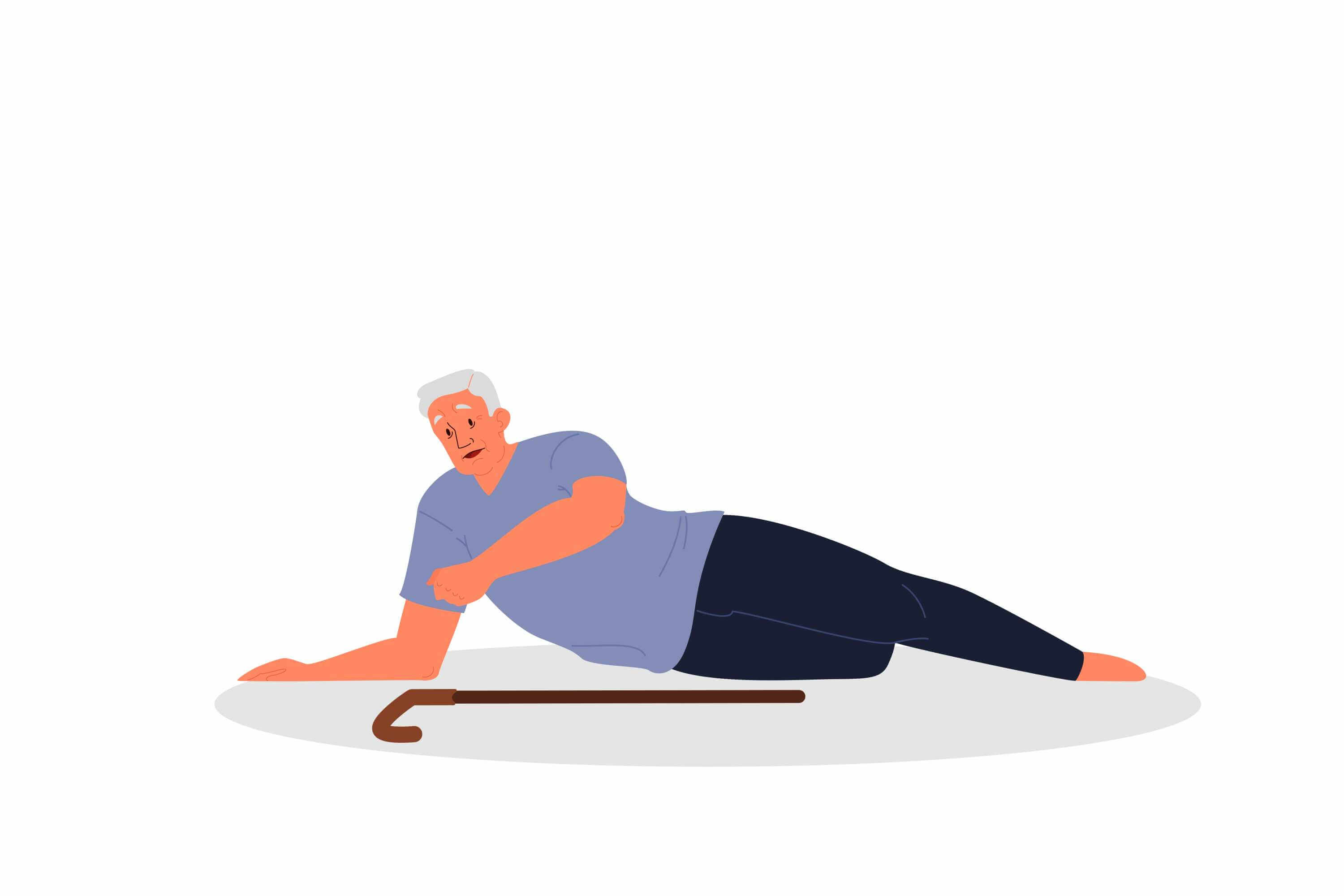Study Reveals Commonly Prescribed Medications Heighten Fall Risk And Injuries In Copd Patients

New Research Highlights the Increased Fall Risk for COPD Patients Using Common Medications
A recent study published in the November 2024 issue of Chronic Obstructive Pulmonary Diseases: Journal of the COPD Foundation has unveiled alarming findings regarding chronic obstructive pulmonary disease (COPD) patients and their increased risk of falls while using certain medications. The research underscores the urgent need for healthcare professionals to pay closer attention to the fall risks associated with pharmacological treatments in this vulnerable population.
Chronic obstructive pulmonary disease, characterized by persistent respiratory symptoms and airflow limitation, affects millions of individuals worldwide. The condition encompasses various respiratory ailments, including chronic bronchitis and emphysema. Symptoms such as breathlessness, chronic cough, and fatigue hinder the quality of life for approximately 30 million people in the United States. Alarmingly, COPD is responsible for being the fourth leading cause of death globally, highlighting the necessity for healthcare experts to explore improved management strategies for those living with this debilitating disease.
The research methodology involved analyzing data from a health system connected to Washington State death certificates, focusing on adults aged 40 and older with COPD who passed away between 2014 and 2018. The study highlighted that over 65% of the 8,204 patients examined had been prescribed at least one drug known to increase fall risks. Incredibly, 30% of these individuals experienced a fall with injury in the two years preceding their death, raising critical questions about the safety of medication regimens used in COPD management.
Dr. Cara L. McDermott, the lead author of the study and an assistant professor in medicine in the Division of Geriatrics and Palliative Care at Duke University School of Medicine, emphasized the troubling intersection of COPD symptoms and the necessity for managing comorbid conditions. Patients commonly utilize opioids, benzodiazepines, and other drugs to alleviate the multitude of symptoms they face, ranging from anxiety to chronic pain. Yet, these medications can inadvertently heighten fall risks, leading to serious injuries that may require emergency department visits or hospitalizations.
The study also investigated the relationship between the number of fall-risk increasing drugs prescribed and the likelihood of falling. Dr. McDermott stated that the probability of experiencing a fall rose proportionally to the quantity of these medications. Such findings accentuate the need for healthcare professionals to modify their prescribing practices, tailoring medication plans to consider the increased frailty and already heightened fall risks faced by individuals with COPD.
Collaboration between pulmonologists, pharmacists, and other healthcare providers is crucial to create effective fall prevention strategies. This multidisciplinary approach must focus on enhancing patient safety by reevaluating the use of fall-risk medications and by exploring alternative therapeutic options that effectively manage symptoms without contributing to fall risk.
Additionally, Dr. McDermott’s research highlights the necessity for comprehensive assessments of patients’ medication regimens. A closer look at the potential for non-pharmacological interventions and the establishment of individualized patient care plans could play a crucial role in mitigating the risk of falls among COPD patients. This is particularly important given the complexities of managing comorbidities alongside COPD and the significant impact on patients’ overall well-being.
The findings of this study contribute to a growing body of literature that advocates for transformative changes in the management of COPD. Improved education for healthcare professionals regarding medication risks could lead to enhanced patient outcomes, showcasing the importance of ongoing training and awareness of the complexities surrounding COPD treatment. For patients, understanding the implications of their medication use on their fall risk can empower them to engage more actively in discussions with their healthcare providers.
This research serves not only as a call to action for better clinical practices but also as a foundation for future studies aimed at exploring safer treatment methods for COPD patients. As the medical community continues to unravel the intricate relationships between chronic diseases, medications, and patient safety, the need for vigilance and comprehensive care remains paramount.
Overall, the study illustrates an undeniable need to focus on patient safety as a top priority, especially in a population as vulnerable as those suffering from COPD. The implications of falling for this group can be severe, often leading to deteriorated health and significant increases in healthcare costs. It is essential that both current and future research prioritize safer treatment plans that do not compromise the well-being of patients.
Promoting awareness and education on the risks associated with certain medications in the context of chronic illnesses is essential for advancing the quality of care delivered to patients. To cultivate a healthcare environment where patient safety is at the forefront will require an active commitment from all healthcare professionals involved in managing COPD and similar conditions.
As we move forward, it is essential to not only acknowledge the findings of this study but to act upon them. The interplay between COPD and the medications used to manage it illustrates a complex challenge that can no longer be overlooked. By prioritizing patient-centric approaches and fostering open communication between healthcare providers and patients, the risks associated with medications can be minimized, enhancing the quality of life for millions living with chronic respiratory conditions.
Ultimately, the relationship between medication use and fall risk in individuals with COPD reflects the broader need for a compassionate and informed approach to treatment. In doing so, the healthcare community can safeguard the health and safety of those with COPD, fostering a path toward better health outcomes.
Subject of Research: Medication Use and Fall Risk in COPD Patients
Article Title: Fall Risk and Medication Use Near End of Life Among Adults With Chronic Obstructive Pulmonary Disease
News Publication Date: January 14, 2025
Web References: Chronic Obstructive Pulmonary Diseases Journal of the COPD Foundation
References: DOI link
Image Credits: Not provided
Keywords: Chronic obstructive pulmonary disease, Fall risk, Medication safety, Patient care, Health outcomes.


